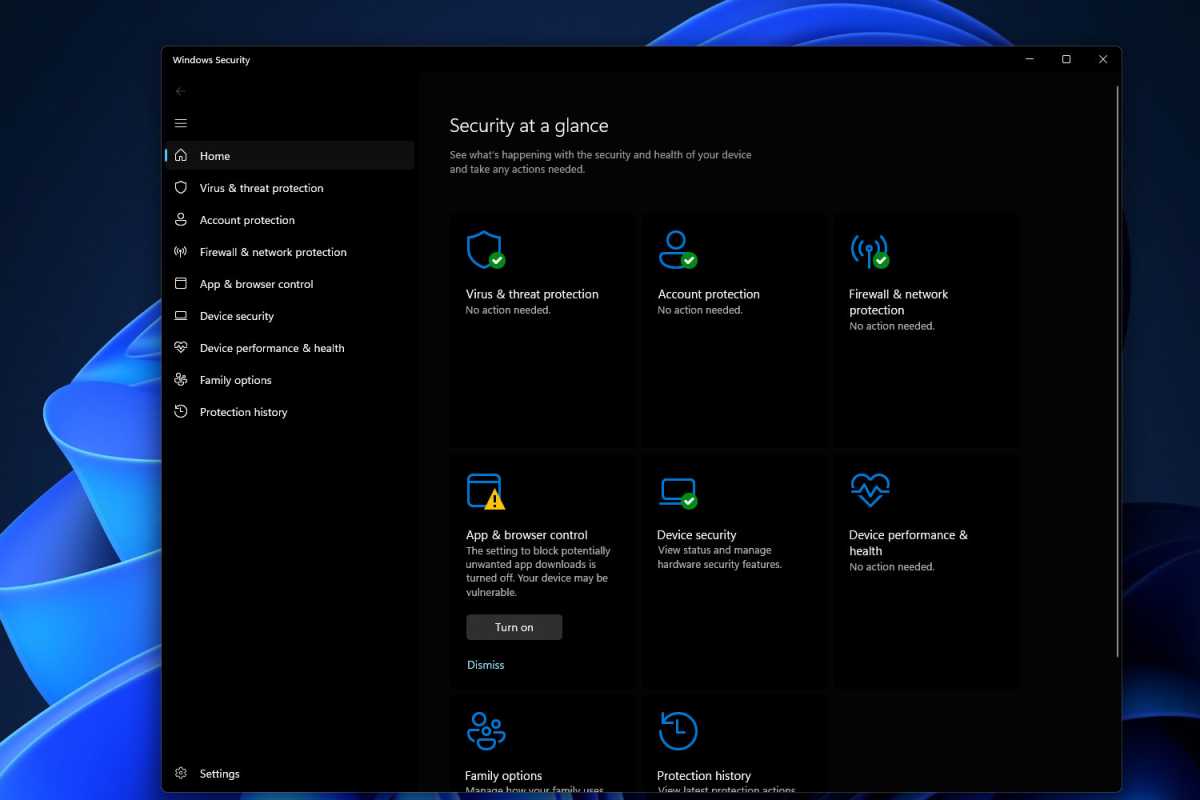Free anti-malware solutions might be enough for you. Or maybe they aren’t.
You get what you pay for. That’s what they always say, right? And while that can be true for many things, antivirus software is a little different.
There are reputable free antivirus solutions out there, most notably Windows Security that’s built into Windows 11. Maybe you don’t want to pay up for premium features. Or maybe you can’t afford to.
Is free antivirus good enough in 2024? Can you get away without paying for a full suite of antivirus tools and services? If so, what are the downsides and drawbacks that you need to be aware of?
Pro: Free is free*
The main selling point of free antivirus software is that it’s… well, free. You don’t have to pay for it. You can have it right now!
Whether it’s Microsoft Defender and the other related security tools that come with Windows or the standalone applications by third-party companies like Avast, Malwarebytes, Avira, and BitDefender, you can benefit from additional protection without committing anything.
Considering the initial upfront costs of a new PC or laptop, plus any associated software you might need for work or school, not paying a subscription fee for computer security is pretty darn great.
*Free as in beer but not necessarily free as in speech. See below for one big drawback to using most “free” software.
Con: When you don’t pay for the product, you are the product
From free social media accounts to free product giveaways to free newsletters and websites, the prevailing maxim holds true: if you aren’t paying for the product, then you are the product.
Here’s what that means for antivirus software: companies can afford to give their software away free of charge because they’re almost certainly harvesting your data to be sold elsewhere.
With free antivirus, you can all but guarantee that developers are making their money back somehow. If they aren’t selling your data, then they’re likely advertising to you. Probably a bit of both.
There have been stories over the years of big names in the free antivirus space—like Avast and AVG—harvesting user data. Both companies, now owned by the same parent firm, were found in 2020 to be selling user data through a subsidiary, Jumpshot, including information like search habits and browsing history.
Then there’s the likes of Kaspersky, which has a free antivirus product that has been linked with Russian hacking efforts.
Pro: Free protection is usually enough
The modern Windows PC experience is much more secure than it was in the past. Windows 11 comes with a range of protective features that help safeguard your data and your personal information in a relatively comprehensive manner.
The combination of Microsoft Defender, Windows Firewall, SmartScreen, Secure Boot, and others are enough for most users if you practice good security habits. That means not visiting shady websites, not clicking links in emails and private messages, and not downloading random files.
If you want additional protection, a free third-party antivirus can be used in conjunction with Microsoft Defender to provide multiple layers of security. As long as you keep your software up to date, you should be well-protected enough against the most common threats.

Jon Martindale / IDG
Con: You miss out on advanced features
Premium antivirus solutions do much more than just protect against run-of-the-mill viruses. Their anti-malware efforts incorporate machine learning and AI to track threats and pre-emptively block them.
Some also include advanced anti-ransomware and anti-phishing security, and some offer advanced identity protection with dark web monitoring to warn you if/when your data leaks or appears for sale somewhere.
A premium suite can also have family subscriptions with parental controls and support for multiple devices. That alone could be worth its weight in gold since even one person or one device that’s vulnerable to attack could compromise your whole network.
Pro: Easy, straightforward protection
As great as many of the advanced features in premium antivirus software can be, they aren’t always necessary—and for some users, they might be just complicated enough that you never end up using them anyway.
Perhaps you don’t need to protect multiples devices. Or you already have a secure cloud storage solution. Whatever your reasons, if you don’t need a comprehensive anti-malware solution, why pay for it?
Free antivirus solutions might try to upsell you to premium plans, but most are pretty simple to use. They don’t have tons of background processes bogging down your device and they don’t overwhelm with too many options. There’s value in that simplicity.
Cons: Lack of support
Free antivirus is a lot more hands-off than premium antivirus… and you’re expected to figure things out on your own, to some degree. There might be some support—perhaps in the form of a knowledgebase or forums—but it won’t be live and it certainly won’t be comprehensive.
Premium support phone lines and live chats are often only included as part of paid antivirus packages. If you aren’t paying, you aren’t going to get much time from a real person if something goes wrong.
Not that it’s likely for something to go awry, but in the slim chance it happens, just know you’ll be troubleshooting it yourself (or asking friendly forum members for help).
When to pay for premium antivirus
If you’re okay with simple, essential protection against the most common threats, and if you’re okay taking your own security into your own hands, and if you can troubleshoot when things don’t work, then you should be fine with just free antivirus apps.
But if you don’t like the idea of “being the product,” or if you want comprehensive protection with advanced features like anti-ransomware measures or identity theft tracking, or if you just want the peace of mind that comes with 24/7 live support, then pay for premium antivirus.




